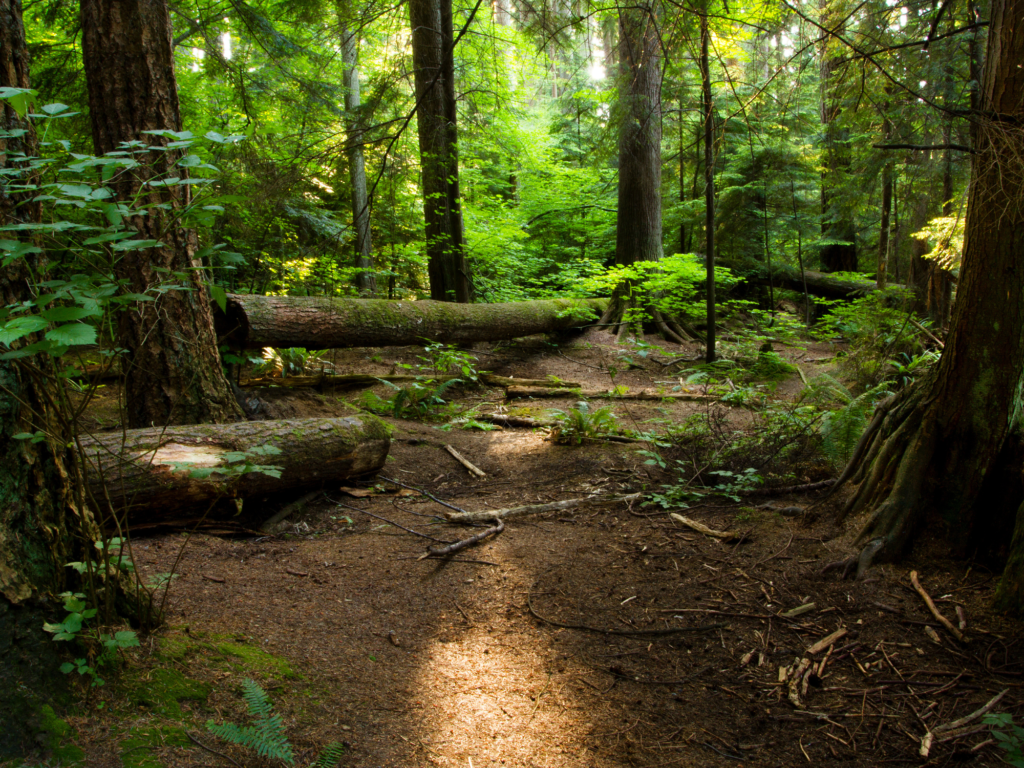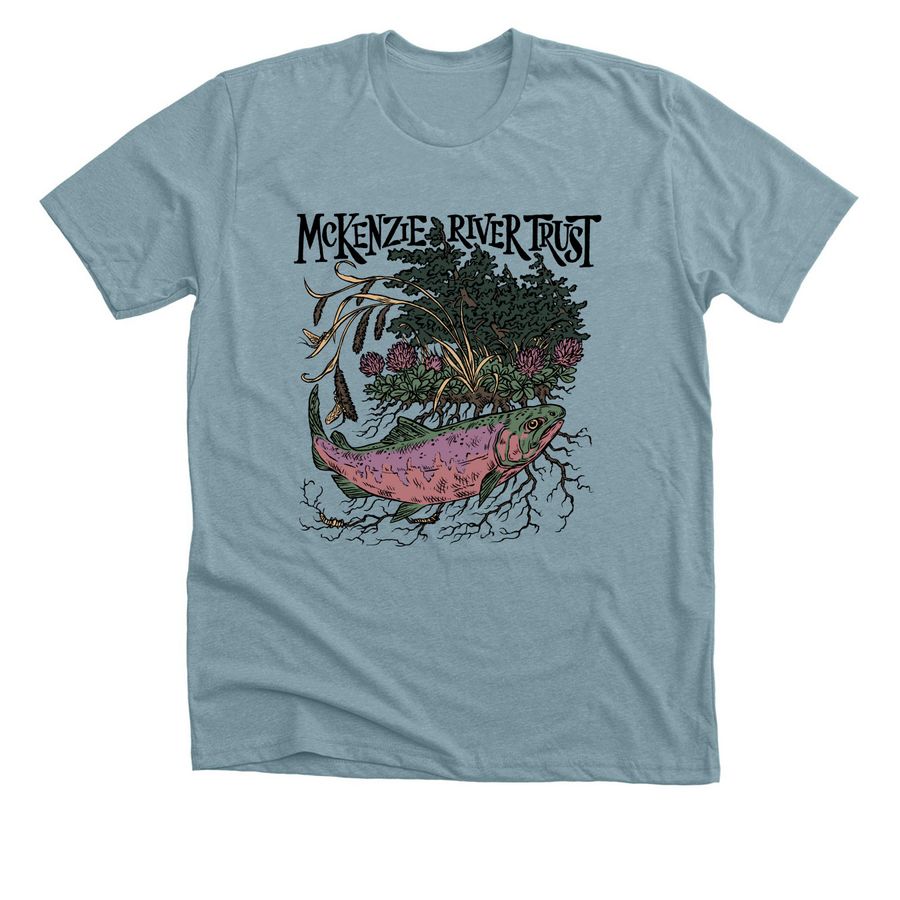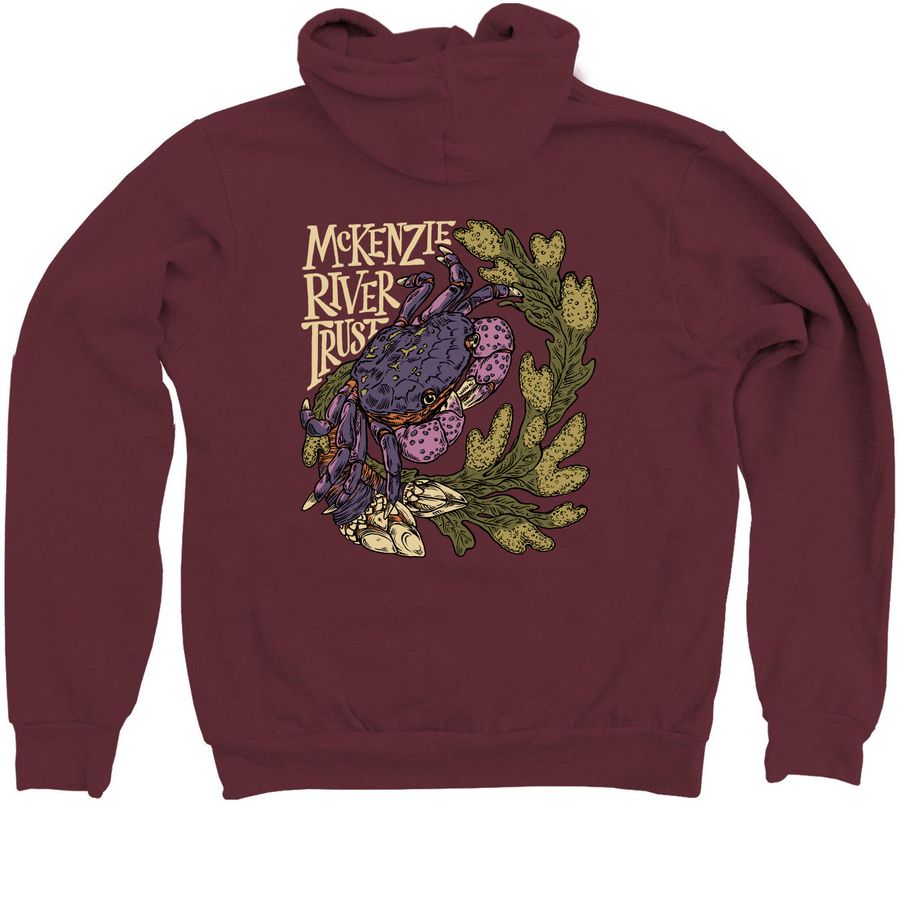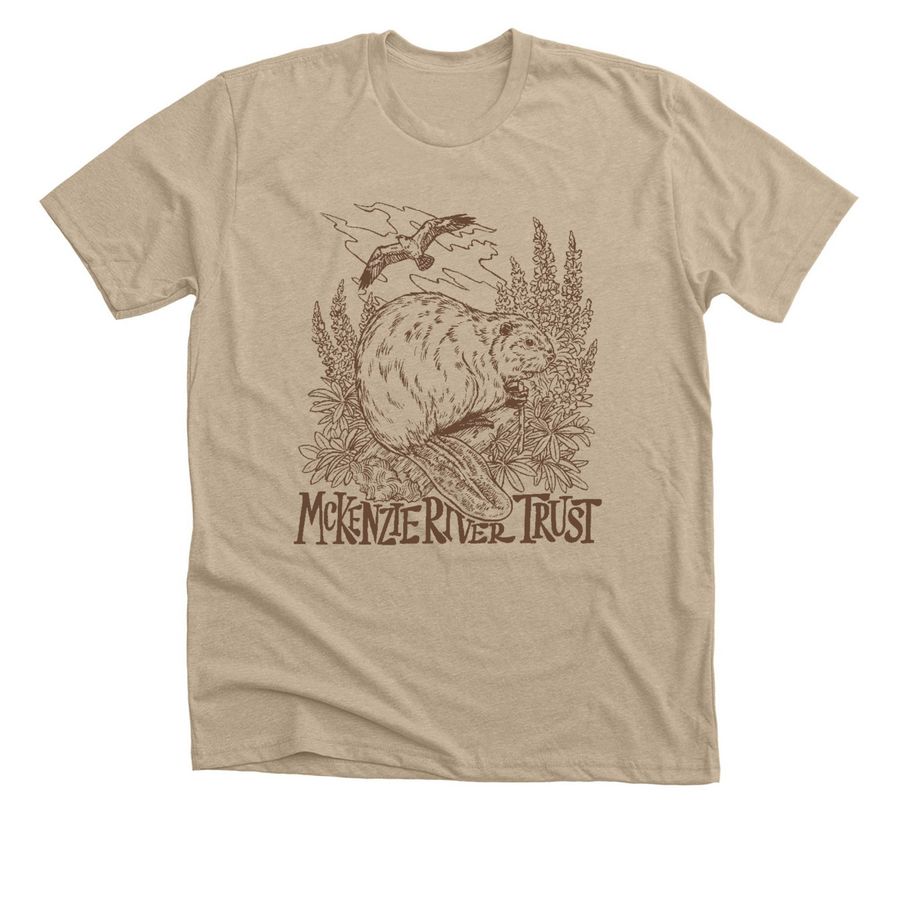Mary Sharon Moore
Excerpts from the forthcoming book, Nature Notes
© Mary Sharon Moore, 2022

I’m a little over an hour into my seven-hour hike along the McKenzie River Trail. And it’s a stunningly beautiful summer morning in Oregon’s western Cascades.
My aim today? To hike ten miles.
Breezes waft up from the river, cool and fresh across my face, even as the mid-July temperature starts to climb from the overnight’s high 50s.
I pass the trail spur that drops down to Paradise Campground, and a few paces ahead I see …
What is this?
The massive trunk of a freshly fallen Douglas fir lies prone across the trail.
I stop dead in my tracks and study the situation.
Maybe I can go around it, I foolishly think.
But the understory is thick with sword fern, salal, and forest berry bushes. So thick that I cannot find the upended root mass that would identify the base of the trunk, nor anything suggesting canopy at the top.
To get a better sense of the situation, I stand tall against the fallen trunk, and note that it’s topside is as high as my shoulder.
So the question becomes: How do I scale up and over the trunk, without making a fool of myself?
I am determined, I tell myself, to get beyond this barrier. It’s nearly six hours before the bus returns to take me home. And I am not turning back.
I’ve been through this drill before.
I espy a small white birch trunk lying smashed alongside Brother Doug Fir. I test my weight on its spine, which gives some. It won’t add much height. But it’s worth a try.
I remove my backpack, my vest, which I fold and place in the backpack’s front pouch, and toss the pack over to the other side.
Yes, I’ve been through this drill before.
With this gesture I’ve sealed the deal. I’m committed to scaling this trunk.
Carefully, I prop my hiking stick within reach on the other side. I swing a leg up and over, fail, swing again, grope madly to secure my grip, straddle the log, butt-scoot, pivot to the other side, and drop several inches to the ground.
There. I did it. I brush my hands, feeling quietly proud of this feat. My father, after all, was a woodsman in his younger years.
But my heart sinks. The slight decline of the trail on this side of the trunk, creating a gap between the trunk’s underbelly and the path, tells me that the climb over on my return will not be so easy. The top of the trunk on this side is well beyond shoulder height.
I’ll think about it when I return, I tell myself. I need to explore the wilderness ahead.
Explore the wilderness.
And now I think of the three times Jesus asks the crowds: What did you go out to the wilderness to see?
He could be talking to me.
What did you think you would find? he asks.
It’s the wilderness, for crying out loud!
Well, what did I go out to the wilderness to see? A groomed forest trail with no larger challenges than the occasional gnarled, weathered tree root cropping up in my path?
Why did I go out? To be tested and challenged beyond my comfort zone? beyond my physical capabilities? To discover that more might be asked of me than what I thought I had to give?
Not really. I just wanted to hike on this awesomely beautiful summer day.
In mid afternoon, as I make my way back to the Ranger Station trailhead, I come again to fallen Brother Doug Fir. The morning experience is still fresh in my memory. Nothing has changed.
On closer look, I notice some loose-hanging bark on the underside. So I pull off a couple of thick panels of bark and stack them to create a platform step.
Off and over goes the backpack. I use the walking stick for a boost as I strain to hoist and secure one leg across the massive trunk.
It takes two failed attempts before I finally gain leverage. I belly-crawl up and across the top of the log, and reach a leg down in search of the morning’s small crushed white birch trunk.
I admit: This is not pretty.
The little white trunk crunches some, but thankfully does not give way under my weight. I inch the other leg over, as my arms grip their way across the sides of the trunk.
Like a lizard, I think, or a squirrel, but with more weight and less precision and grace.
I feel grateful for the small mercy that no fellow hikers have come along in this moment—a moment of looking foolish, a moment of testing.
I brush trunk debris from my jeans, my shirt, take a long drink of water, hoist my backpack, fetch my walking stick, and walk on, as though this is all part of a day’s hike in the wilderness.
Well, it is.






